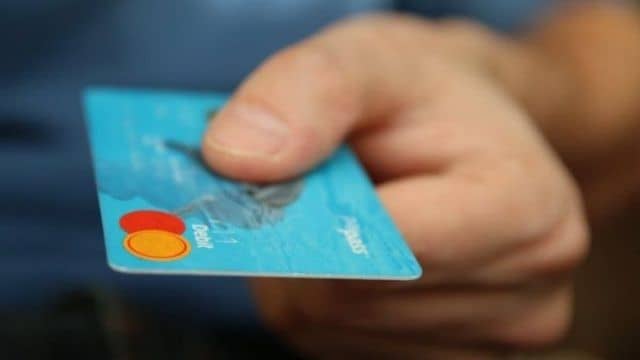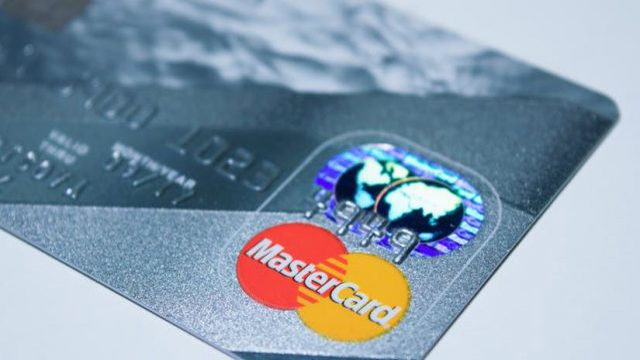Advertiser Disclosure
What Is a Credit Score?
Updated On September 10, 2022
Editorial Note: This content is based solely on the author's opinions and is not provided, approved, endorsed or reviewed by any financial institution or partner.

If you want to know "what is a credit score?," then let’s start with the basics. There are three major credit bureaus that issue credit reports, which are used to rate your creditworthiness. The three credit bureaus are Experian, Equifax and TransUnion. These credit bureaus will calculate a three-digit credit score for you based on your credit worthiness. Your credit score is used by lenders and financial institutions when they decide to lend you money or issue you a credit card.
The most common credit score is called the FICO credit score, which ranges from 300-850. Therefore, the lowest credit score is 350. When people ask that is the best credit score, the answer is 850.
In this guide, you will learn everything you need to know about your credit score, including:
- How to calculate your credit score
- What is the best credit score? How can I get the highest credit score?
- Why is it important to increase your credit score?
- What is the best way to increase your credit score?
- How long does it take to improve my credit score?
How to calculate your credit score
Your FICO credit score is based on the following components:
- Payment history = 35%
- Credit utilization = 30%
- Account age = 15%
- Inquiries = 10%
- Credit Mix = 10%
What is the best credit score? How can I get the highest credit score?
When people ask what is an excellent credit score, there is no exact number. That said, if you have a credit score of 750 or higher, then you have an excellent credit score. If your credit score is 800 or higher, you have a super star level credit score.
Here is a helpful chart to better understand credit score and what is an excellent credit score under FICO:If you want to know how to get the highest credit score, start by understanding what each component of your FICO credit score means. Once you check your credit score and understand the credit score breakdown, you can work toward building an excellent credit score.
These are the components of your FICO credit score:
Payment history
Payment history shows all your previous payments and whether you have paid on-time. The best way to build an excellent credit score is to make on-time payments and avoid late payments.
Credit utilization
Debt utilization is the amount of debt outstanding as a percentage of your credit limit. For example, if you have a $10,000 credit limit and a $3,000 outstanding credit card balance, then your debt utilization is 30%. If you want to know how to increase your credit score, you should maintain a credit utilization below 30%. If you are building your credit score for the first time and are using a secured credit card, try to keep your debt utilization 10% or less.
Account age
Account age is the average age of all your credit accounts. The best way to build an excellent credit score is to have multiple credit accounts that are outstanding for a long period of time.
Credit inquiries
Credit inquiries occur whenever you apply for new credit, including a mortgage, student loan, credit card or personal loan. Soft credit inquiries do not impact your credit score, whereas hard credit inquiries do impact your credit score. Therefore, you should try to limit the amount of hard inquiries within a short period of time if you want to have the highest credit score. The good news is that you can often apply to multiple lenders within a short period of time for the same product such as to refinance student loans, for example, and it will only count as one hard credit inquiry.
Credit mix
Credit mix represent the different types of credit that you have, including student loans, credit cards, mortgages and auto loans.
Why is it important to increase your credit score?
Your credit score, in many respects, is the key to your financial future. If you want a credit card, personal loan, auto loan, student loan refinance or many other financial products, you need to know how to increase your credit score. You should check your credit score at least annually, and check your credit score before applying for credit. When you check your credit score, look for errors or discrepancies. Contact all three credit bureaus to correct any errors.
Today, even landlords and employers will check your credit score to ensure that you are financially responsible. You won’t need the highest credit score to get a job or to rent an apartment. However, having an excellent credit score will convey to employers and landlords that you are trustworthy and financially secure.
What is the best way to increase your credit score?
If you want to work your way toward the highest credit score, here is some helpful advice to increase your credit score:
1. Don’t pay interest. Pay your bills on-time 100% of the time.
2. Don’t miss payments. Don’t skip any payments, since missed payments can hurt your credit score.
3. Avoid opening too many accounts. While having a diverse credit might seem like the best way to build credit, don’t open too many credit accounts at once. Too many new accounts can lower your average account age.
4. Increase your account age. Want to know how to increase your credit score? Keep your credit accounts open and active for as long as possible, since average account age is one component of your credit score.
5. Check your credit score. If you want to know to improve your credit score, check your credit score at least annually to ensure there are no errors or discrepancies. If your find any errors when you check your credit score, contact all three credit bureaus to have the errors corrected.
How long does it take to improve my credit score?
It’s never too early to improve your credit score, particularly if you want to learn how to build credit fast. The best way to raise your credit score is to develop a track record of financial responsibility. By borrowing credit and making monthly payments in full and on time, you can convey to lenders and financial institutions that you are a responsible borrower.
If you want to know how to build credit fast, you can typically build your credit in 1-2 years if you want to have an average or good credit score.
To build an excellent credit score, it could take many years (e.g., 7+ years) to increase your credit score.
Follow these tips if you want to know how to improve your credit score:
- Longer Account Age. The longer your accounts are open and active, the longer your average account age, which help boost your credit score.
- Reduce Credit Utilization. Focus on reducing your credit utilization, which you can do by spending less or getting more credit.
- Consolidate Credit Card Debt. If you have credit card debt, consolidate credit cards into a personal loan to cut your interest payments
- Pay On Time. Always make monthly payment in full and on-time, and you will develop a longer, positive payment history
- Don’t Miss Payments. Never miss a payment
- Build Credit Early. Start building a credit history as early as possible, even if you are in school. Student cards a great option for students to start building credit.



